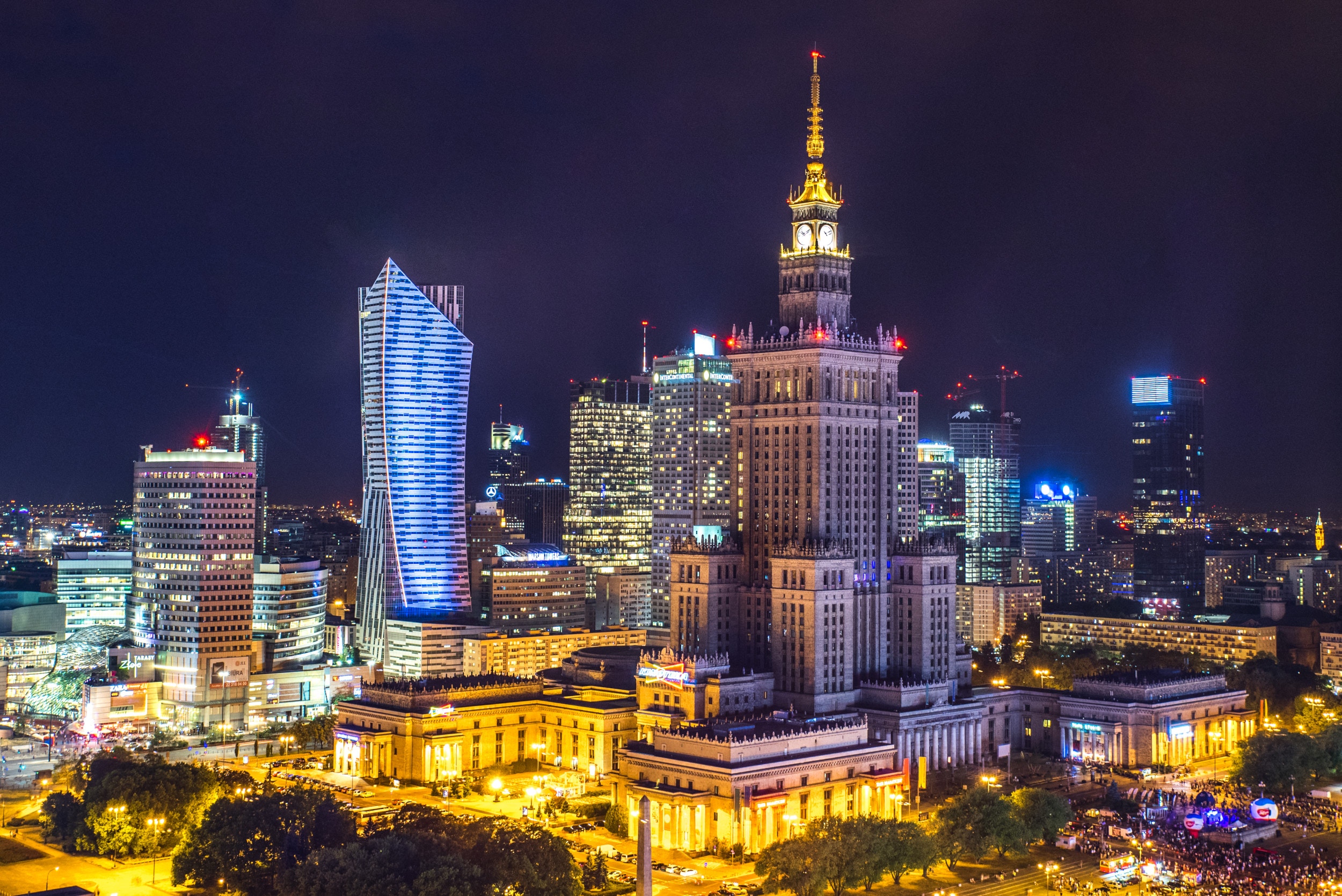The Palace of Culture and Science is probably the most controversial building in Warsaw. With an exotic combination of Soviet and Newyorkese architecture, it overlooks the city hiding extraordinary stories. The building that once hosted the Rolling Stones and Stalin, today has been dedicated to a very sparkling event for the Eastern European startup ecosystem: the Wolves Summit.
Before diving in the features of the event and the people that attended it, some considerations are strictly necessary: thanks to low labor costs and a flexible currency exchange rate, Poland was able to go through the global crisis avoiding a recession and ensuring itself a steady economic growth, while establishing itself in the global tech scene introducing innovation-friendly policies.
The Polish startup ecosystem has been developing significantly in the past 10 years and Warsaw is trying to sit in the stage as one of the most relevant innovation hubs in Europe. Poland can indeed count on a great university network, distributed across its seven main cities, able to allocate on the labor market thousands of capable and internationally attractive professionals from the IT world. Reports by Hackerrank and Stack Overflow in 2016 showed that Poland was home for about 254,000 developers and that it globally classified at first place for Java developers. Leveraging the mobility of its talents across the world, especially towards the UK and US market, Poland is increasingly attracting the attention of international investors and big corporates.
Just one week ago our data partner Dealroom, in collaboration with Google, released an extraordinarily interesting report about the development of the Central & Eastern European startup ecosystem which underlines how Poland is establishing itself as the leading actor of the area.
Dealroom reported that the total amount of VC investments in Poland since 2013 passed the wall of 600 million euro in 2019, distributed in about 550 rounds, with about half of them located in the Warsaw region. This data would not be so relevant if compared to the total amount of VC investments in countries like the UK or Germany, where amounts of the single year 2018 were close to 8 and 5 billion euro respectively. However, this sum acquires much more value if compared to the performance of other countries in the same region. Poland indeed classified first for total VC funding in CEE, standing out ahead Estonia, the second most active economy in the VC industry of the region, with a gap of about 200 million euro in the same period. The lead is further impressive if compared to countries like Lithuania, Czech Republic, Hungary, where total VC investments were more than doubled or tripled over the same period.
Regulators have been feeding this growth with important public initiatives.
For example, the Polish Agency for Enterprise Development, which promotes a Scale-Up program to facilitate the connection and collaboration between startups and big corporates, invested 30 million euro to be distributed across about 10 accelerators selected by the Agency with the purpose to sustain about 400 start-ups. At the same time, one of the most significant measures is the new availability of funds for PFR Ventures, a public investment platform with the firepower of about 650 million euro to distribute over the period 2018-2023.
According to Jakub Stracina from the Czech VC firm Enern, public funds are flooding the market and leading the way for small first-time operators looking for their first investments. This is causing concern among historical players, worried about over-inflated prices and valuations due to the increase in competition, but aware at the same time that the market will self select the best performing operators.
In this scenario, the Wolves Summit – at its 9th edition – classifies itself as one of the most long-lived tech events of the Country, and this year attracted hundreds of professionals from neighboring ecosystems, ranging from corporate executives, public officials, investors, and entrepreneurs. Despite the presence of more than 50 startups from the CEE region, operating across a wide array of technological domains, the Wolves is much closer to a networking event than to a pitching one.
Regarding the relationship between corporate and startups in the ecosystem, we had a chat with Vikas Malhotra from Startup Hub Poland.
The accelerator, one of the most important of the country, affirmed that one of its priorities for the development of the ecosystem is to improve the connection between startups and big companies, leveraging the fact that Warsaw, and Poland in general, is the favorite region for big Corporates to establish their headquarters or operative branches in CEE. A further interesting consideration derives from their belief that the demand for innovation from corporates and investors isn’t actually completely satisfied by Polish entrepreneurs, making it even more important to attract foreign talent with private and public initiatives.
To conclude, Poland is still at a developing level if compared to other Central Europe economies. However, the combination of favorable public policies and macroeconomic factors determined the beginning of a maturation process. Stable growth in VC investments over the last 4 years – with an average of about 60% YoY (year over year) – is increasingly attracting the attention of players in the sector from all over Europe and is making the Polish ecosystem a very dynamic market to monitor over next years.
© RIPRODUZIONE RISERVATA
